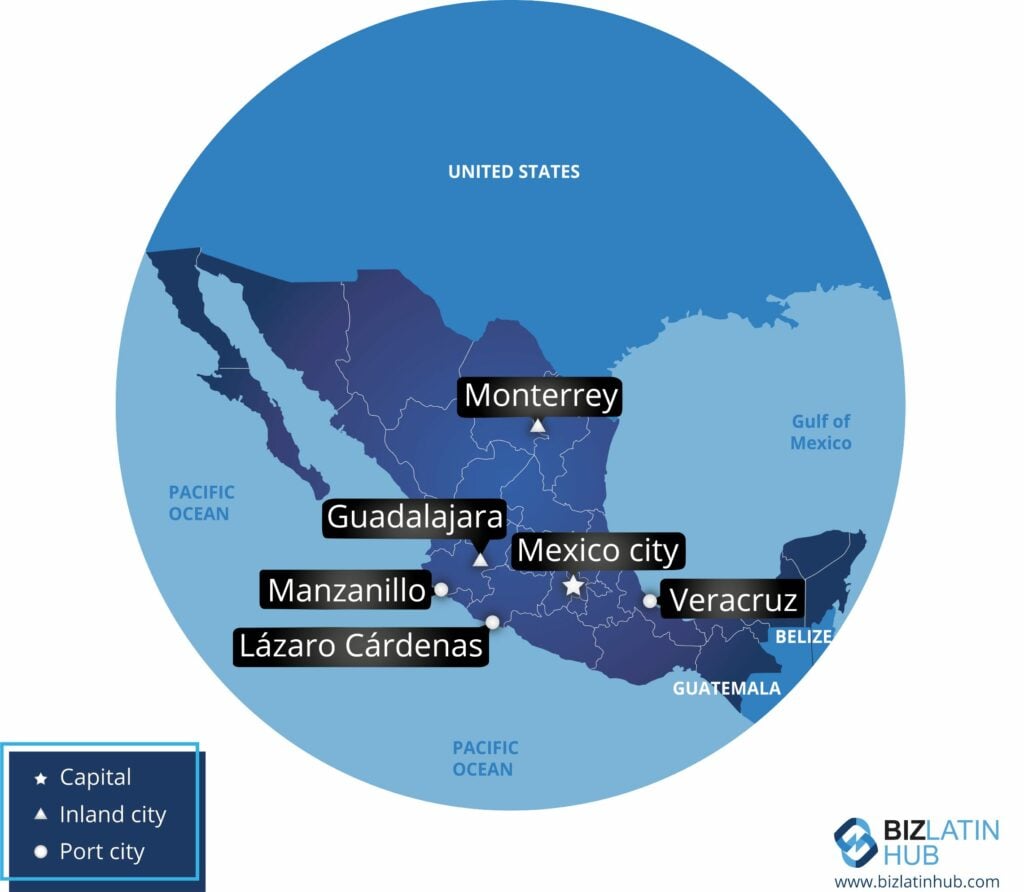In recent years there has been a constant effort on the part of the tax authorities to obtain information that allows for more efficient taxation control; with the aim of achieving higher incomes for the government. This means more regulation of billing requirements in Mexico. This is something to take into account if you are considering company formation in Mexico.
For this reason, it is vital that foreign companies within the country have a comprehensive understanding of their billing requirements in Mexico, both in terms of the local market and international trade. While Mexico has a similar business culture to most other nations, there are some specifics to the country that you should be aware of.
That’s why it makes sense to partner with a local specialist such as Biz Latin Hub. With a network of 18 dedicated local offices around Latin America and the Caribbean, we can help you with billing requirements in Mexico or elsewhere in the region. Not only that, but our array of back office services can make sure your day-to-day operations are fully compliant and allow you to focus on building your business.
Billing Requirements in Mexico for a Foreign Company – Value Added Tax – VAT (IVA in Spanish)
A foreign company is subject to pay taxes for the activities they conduct in Mexico, either through withholding tax for income earned in Mexico, importation taxes/duties or taxable VAT activities. Recently, the Tax Administration Service (SAT) has been reviewing all Mexican companies that purchase goods from foreign companies operating in Mexico.
Although there is an obligation for Mexican companies to pay VAT, they also have the right to credit it and therefore the payment of it is “virtual”; that is, the result of this control effort does not have a collection effect and only generates costs and inconveniences for Mexican companies and for SAT itself.
Another issue that has affected this type of transaction is certain formal obligations that apply to foreign companies that sell goods or providing services in Mexico.

Basic Billing Requirements in Mexico
Until last year, it was enough that the invoices of foreign companies include basic requirements that any invoice contains. This included:
- Deduction of the purchases and prove that VAT has been paid
- Identification of company issuing the invoice
- Identification of company receiving the invoice
- Description of good, service and price
Currently, for the purposes of articles 29, antepenúltima paragraph and 29-A, and the last paragraph of the Fiscal Code of the Federation, taxpayers who deduct or credit tax receipts issued by residents abroad without a permanent establishment in Mexico, can use such vouchers which contain the following:
- Name, denomination, company name, address and tax identification number
- Place and date of issue
- RFC of the person/s or business/es involved
- The requirements established in article 29-A, section V, first paragraph of the CFF
- Unit value and total amount of the good or service
- In the case of the alienation of goods or the granting of their use or temporary enjoyment, the amount of taxes withheld, as well as the taxes transferred, are separated from each of the corresponding tax rates
Many Mexican companies already have customers billed electronically abroad. Two common accounting questions are: Is the RFC to be recorded in electronic invoices as a business transaction? How is it established?

Federal Taxpayers Registry (RFC)
In accordance with regulation 2.7.1.26 of the Fiscal Miscellaneous Resolution for 2016, for this type of transaction with customers residing abroad, the generic RFC XEXX010101000 is used when one of the two subjects is not a Mexican national, and lives outside the country.
The RFC is a code that identifies you to the federal tax authorities as a taxpayer. It is used as a means to fulfill tax obligations in regards to your economic activities. The RFC is the basic requirement in digital tax receipts (CFDI), in accordance with articles 29 and 29-A of the CFF.
The RFC contains your basic personal data such as your surname, name and date of birth; assisting SAT in identifying Mexican taxpayers. You will also have a homoclave assigned to you by SAT. The generic RFC is used in very specific cases; for example, when you perform a legal act with a physical or moral person of which you do not know their RFC.
Today all taxpayers are obliged to issue tax receipts according to government policy, even if their clients do not request them. For this reason, it is important for foreign companies to understand their invoicing requirements; with this knowledge you will be able to issue a CFDI with the generic RFC by operation. Remember that it is important to do so in order to be permitted tax deductions. The use of the generic RFC can allow you to maintain customers while complying with the law; as long as the taxpayers comply with the requirements established by the tax regulations to issue these types of vouchers.
FAQs on billing requirements in Mexico
Name, denomination, company name, address and tax identification number
Place and date of issue
RFC of the person/s or business/es involved
The requirements established in article 29-A, section V, first paragraph of the CFF
Unit value and total amount of the good or service
In the case of the alienation of goods or the granting of their use or temporary enjoyment, the amount of taxes withheld, as well as the taxes transferred, are separated from each of the corresponding tax rates
The RFC is a code that identifies you to the federal tax authorities as a taxpayer. It is used as a means to fulfill tax obligations in regards to your economic activities. The RFC is the basic requirement in digital tax receipts (CFDI), in accordance with articles 29 and 29-A of the CFF.
If the company has a permanent legal presence, anyone legally authorised to sign documents on behalf of that company will be able to issue an invoice. Where the company does not have a legal entity constituted in Mexico, but instead has an appointed legal representative in the country, that representative can manage invoices on the company’s behalf.
Invoices indicate outstanding payment due for goods or services, and represent a type of legal protection to both parties involved in a business transaction, promising the client the service and the contractor their payment.
Biz Latin Hub can help with billing requirements in Mexico
At Biz Latin Hub, we offer a full portfolio of customized back-office services, including accounting and tax advisory services. Our team of multilingual specialists is equipped to help you meet billing requirements for a foreign company in Mexico and ensure the good health of your business.
Reach out to us now for more information on how we can help you ensure the growth and success of your business operation in Mexico.
Learn more about our team and expert authors.





